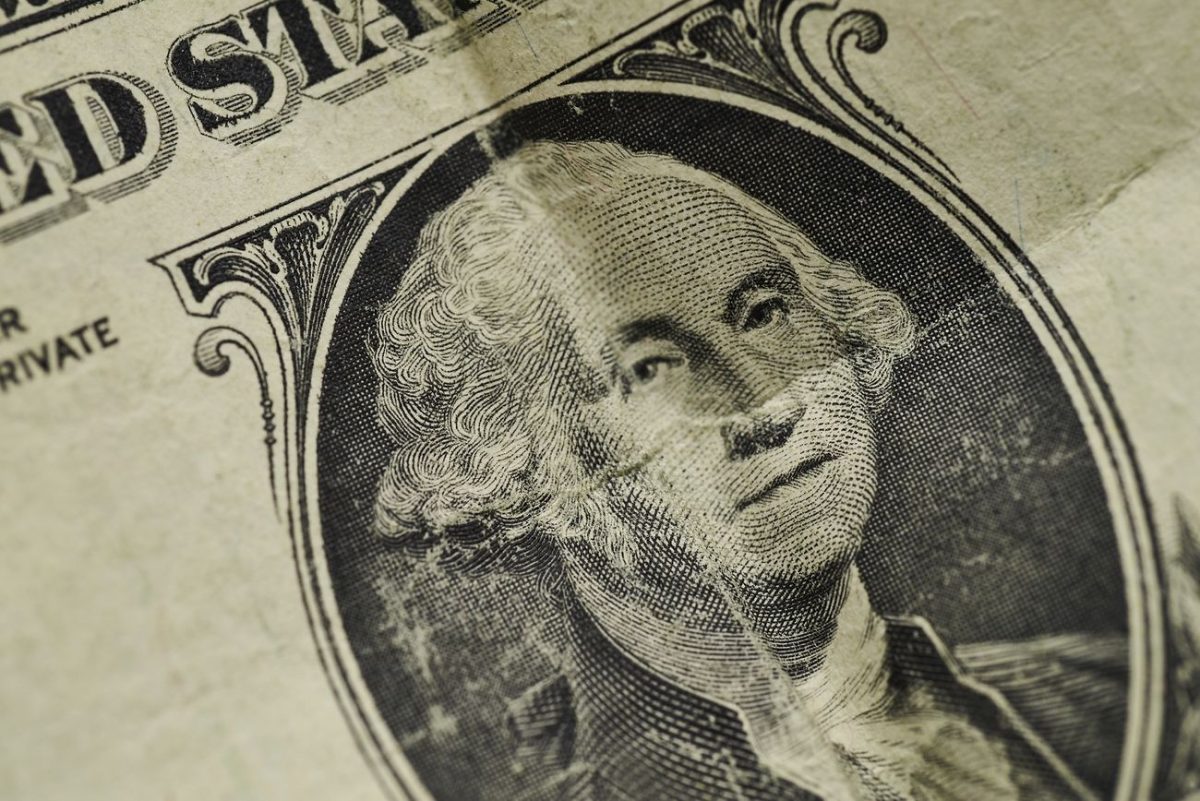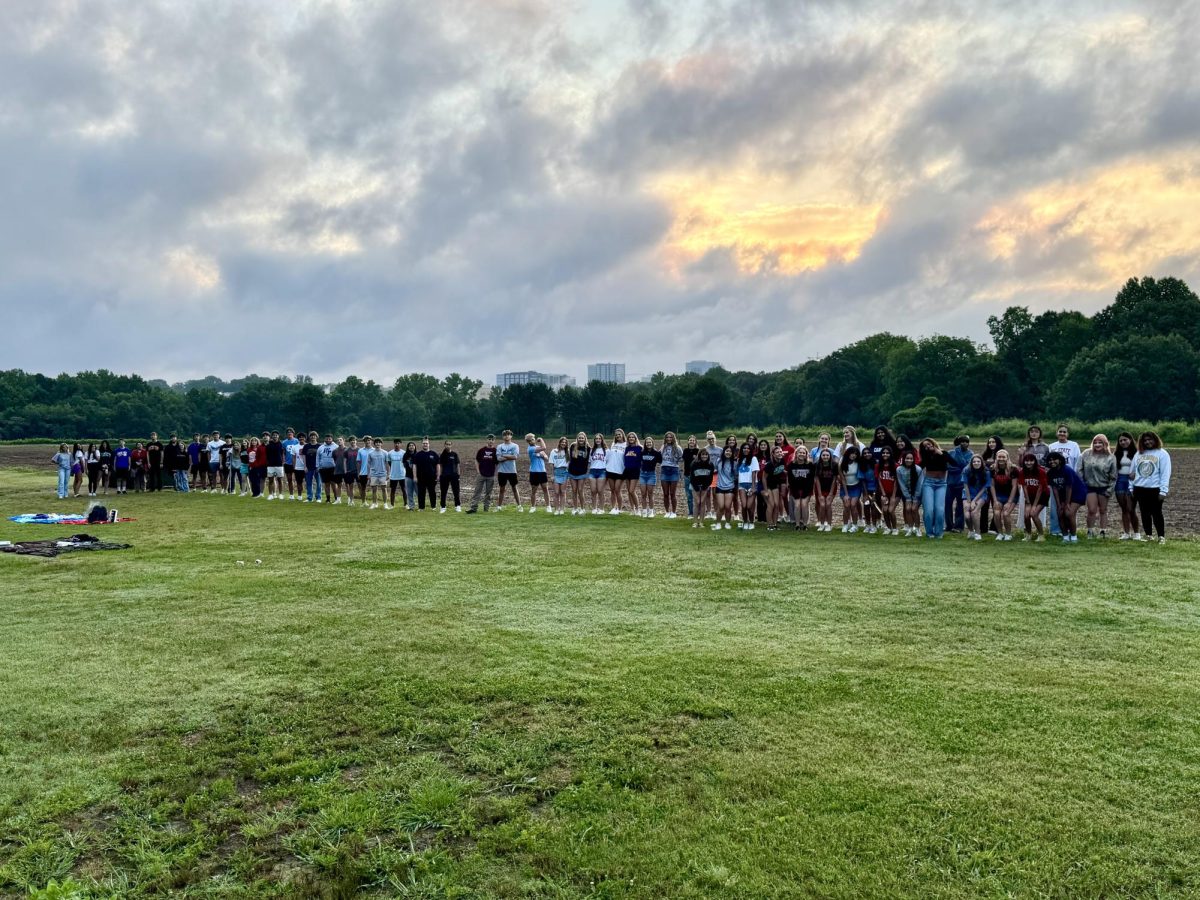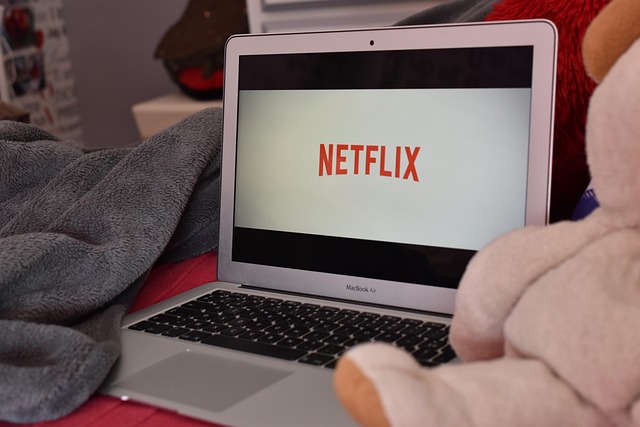
On Oct. 7, the world was set aflame. Another Middle Eastern war was sparked, but this time, along the borders of Israel and Palestine. The conflict urged for humanitarian aid from countries worldwide and urged for everyone with a heart to educate themselves on the decades long conflict that managed to create a divide between two people: the colonization of Palestine.
A sensitive topic for Palestinians and Jewish people alike, both defending their country, but wanting justice for what they have endured. A strained and extensive history that spills into the nationality and ongoing protests today:
The Balfour Declaration of 1917 was established by the British government, which had colonial control over the country of Palestine, and committed the establishment of Palestine as “a national home for the Jewish people”.
Between 1923-1948, a British mandate helped facilitate the mass immigration of Jewish people to the country of Palestine, the majority of the civilians fleeing Nazi Europe, seeking refuge in a country where they were promised safety.
This agreement that initially allowed for the welcoming of Jewish people on the cultural grounds of established Palestine, slowly became a push for colonialism by Zionist forces to create an ethnostate of Israel. The United Nations partition plan, Resolution 181, called for the partition of Palestine into Arab and Jewish states. It called for more than half of Palestine’s land to be Jewish territory and was swiftly rejected by Palestinians. But even before the British mandate, Zionist forces had embarked on their plan to destroy the lands of Palestine to expand the borders of the new Zionist state to be born: Israel.
By May 15, 1948, the British mandate had expired, and Israel announced its national establishment on Palestinian land. This event, widely known as the Nakba, or the english translation the catastrophe, marks the day of which Palestinians were eradicated from their homes, massacred, and ethnically cleansed from their homeland. Overnight, the Indigenous people of Palestine became refugees and were forced to flee from their home country to ensure their safety.
This decades-long “complicated” conflict has been a sensitive topic worldwide, but it is not as complicated as one may think.
Palestine was a multicultural home to many ethnicities and religions, Muslims, Jews, and Christians alike were neighbors. The land that was once home to the Palestinian people, was then promised by a European power as a home country to Jewish refugees. This Zionist movement is what marked the colonization of Palestine a “complicated topic”. Two people wanting a safe home, one eradicated from, and the other seeking refuge.
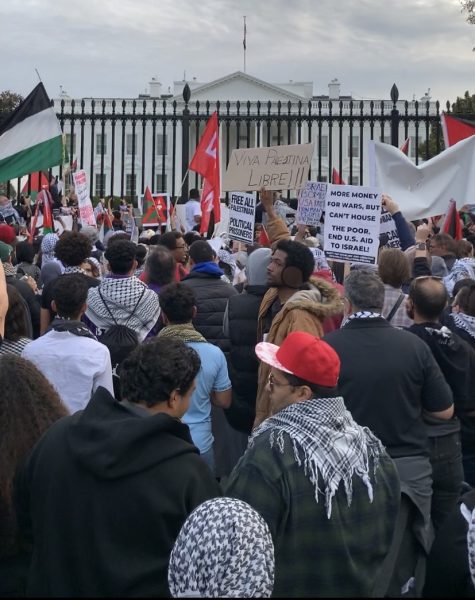
The once Palestinian land was occupied, annexed and rebranded as the nation of Israel which has been seen on maps since 1948. Since then, Palestinian civilians have been under tight Israeli rule, suffering daily attacks from Israel and having completely lost their identification documents, never granted the safety of home. Retaliation forces have fought to reclaim their land and liberate Palestine once and for all. The most recent being the Hamas attack on Oct. 7, retaliating against Israel’s inhumane treatment towards Palestinians and the occupation itself.
Palestinians and fellow supporters of the liberation of Palestine have spoken out and protested everywhere, fighting for the end of the Palestinian occupation. With this, the term “Free Palestine” was born.
But with the protests to liberate Palestine, Jewish voices have raised in defense of their country and claiming that any hostility projected towards Israel is anti-semitic.
Antisemitism is hostility or discrimination against the Jewish people, not the Israeli government. The Free Palestine movement is a movement to liberate Palestine, to stop the dehumanization of Palestinians and to reclaim the Palestinian land that was stolen. It goes against Zionism and the inhumane actions Israel has deposited on the Palestinian people for decades. In no way is it blaming the Jewish people for what Israel has done.
The same goes for when defenders of Palestine are always asked about Hamas. “Do you condemn Hamas?” or “What about October 7th?” Advocating for a liberated Palestine is not simply condemning Hamas. It is recognizing that the “surprise attack” on Israel by Hamas was not unprecedented.
Israel has spent decades cleansing the stolen land of the Indigenous Palestinians. Massacres occurred, Palestinians were displaced, and the ethnic cleansing of Palestine continued. Hamas’ retaliation on Oct. 7 raised previously high tensions between the two countries and fueled more violence, leading to the unfortunate losses between both populations.
Palestine’s liberation is not to eradicate an entire people that have lived on the land, it is to reclaim stolen land. While both Hamas and Israel’s defense strategies are not justified, Hamas’ retaliation was not in an effort to push out the Jewish civilians, but to reclaim their stolen land.
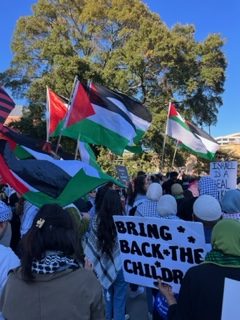
With the way Israel eradicated Palestinians from their land, dehumanized, murdered, and blockaded the remaining parts of Palestine, both now and during the early formation of the new nation, why wouldn’t people fight for an end to Israel’s siege and apartheid on Palestine? What is so taboo about defending the oppressed when they resist the oppressor?
But that is not to say that there is a warrant to eradicate the Jewish population, nor to justify any of the actions taken by Israel or Hamas. The killing of people is never accounted for in any situation. Palestinians want their home back and Jewish people want a place to call home. This is what makes the decades long conflict complex.
But a simple solution, an action taken by governments, by the United Nations, to end the continuous genocide of Palestinians and murder of innocent Israeli and Palestinian civilians? A permanent ceasefire.

